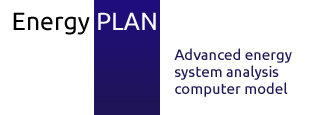Introduction › Forums › Data for EnergyPLAN › How to convert Mwh costs to MW-e
-
AuthorPosts
-
July 5, 2019 at 17:57 #41517
Vanessa Ndlovu
ParticipantGood day,
Can anyone please assist me in converting Mwh costs into MW-e costs. The costs that I have are measure in Rands per Mwh but the input on the model requires the costs to be per MW-e and I dont know how the conversion works. Please assist. Thank you in advance.
September 2, 2019 at 12:52 #41538Jakob Zinck Thellufsen
ParticipantHello Vanessa
To convert from MWh to MW, you can either identifiy the peak production capacity that EnergyPLAN identifies to produce the required energy for the specific technology.
More simple can be to divide MWh with 8784, this will give you the cost in RAND/MW, but the MW will be based on the average capacity which is not always the case.
Jakob
October 9, 2020 at 12:33 #41803Lewis hamilton
ParticipantThe formula used to calculate megawatt-hours is Megawatt hours (MWh) = Megawatts (MW) x Hours (h). To convert megawatt hours to megawatts, you are going to need to divide the number of megawatt hours by the number of hours. In other words: Megawatts (MW) = Megawatt hours (MWh) / Hours (h).
July 3, 2023 at 17:45 #77838Mice Fect
ParticipantSome fans have even created their own rules and guidelines for Pokemon Fusion, taking into account factors like size, type, and evolutionary stage.
July 5, 2023 at 03:42 #77869Amora Potter
ParticipantHere’s how you can perform the conversion:
Start with the cost per MWh. Let’s say it is 500 Rands per MWh.
Calculate the cost per MW-e using the efficiency factor. Divide the cost per MWh by the efficiency percentage (as a decimal). In this case, divide 500 Rands by 0.35 (35% expressed as 0.35):
Cost per MW-e = Cost per MWh / Efficiency
Cost per MW-e = 500 Rands / 0.35
Cost per MW-e = 1428.57 Rands per MW-e foodle
So, the cost per MW-e would be approximately 1428.57 Rands.
July 6, 2023 at 21:25 #77943Senry Mill
ParticipantThank you)
August 14, 2023 at 06:59 #78966Christina Larson
ParticipantCertainly! I can assist you in converting the cost from Rands per MWh (megawatt-hour) to Rands per MW-e (megawatt-electric). The conversion is essentially a unit conversion that accounts for the difference between energy and electric capacity.
September 1, 2023 at 10:15 #79354Jason Blois
ParticipantDo you know now?
September 21, 2023 at 05:54 #79750kalyl cie
ParticipantMWh represents the amount of slope game electrical energy produced or consumed over an hour, while MW-e represents the instantaneous electrical power. In other words, MWh is a measure of energy over time, while MW-e is a measure of power at a specific point in time.
September 21, 2023 at 11:50 #79759Harold Davies
ParticipantPlay cookie clicker online free game
November 17, 2023 at 07:39 #81123eden cook
ParticipantRecognized for its trustworthy air conditioning installation services in Mount Ommaney, Queensland, BG Electrical & Air Con has positioned itself as a reputable presence. With considerable experience in catering to homes like yours, they have built a reliable reputation, establishing them as a dependable option. You can find valuable guidance for ensuring the peak performance of your ceiling fans on their website. In Brisbane, their proficient air conditioning team is ready and well-prepared to address any inquiries or issues you may encounter.
December 25, 2023 at 04:38 #82140laura lorde
ParticipantKeep in mind that the capacity factor is suika game crucial in this conversion because it represents the efficiency and utilization of the power plant.
January 24, 2024 at 08:48 #83056Amy Nelson
ParticipantForget racing etiquette, getaway shootout is survival of the pixelated!
February 20, 2024 at 16:49 #83791James Alan
ParticipantTo convert MWh costs to MW-e, you’d typically adjust for the capacity factor of the energy source. Since MW-e represents electrical output capacity and MWh is energy produced over time, the cost per MW-e would factor in how many hours the system operates at full capacity. For example, if you know the cost per MWh and the capacity factor (the percentage of time the system operates at full capacity), you can estimate the annual cost per MW-e by dividing the cost per MWh by the capacity factor and then adjusting for the number of hours in a year that the system is expected to run at full capacity. It’s a bit technical, so I’d recommend consulting with an energy economist or engineer for precise calculations tailored to your specific context.
Regards,
James from Y9 Games -
AuthorPosts
- You must be logged in to reply to this topic.



